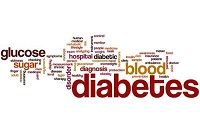Article
Even Mild Hypoglycemia Can Be Risky in Obese Diabetes Patients
Author(s):
Maryland researchers found that even mild hypoglycemia can pose a cardiovascular risk in obese people with diabetes.

Researchers at the University of Maryland School of Medicine have found a link between even mild hypoglycemia, type 2 diabetes, and severe cardiovascular adverse events when patients are obese.
Although it has long been known that hypoglycemia activates "pro-inflammatorily and pro-atherothrombotic responses in healthy and type 1 diabetes individuals," this new study, done in connection with the University of Maryland Diabetes Network, is the first to confirm that even a mild or moderate hypoglycemic condition can acutely affect inflammation and increase risk of atherothrombosis, and can activate a sympathetic nervous system response in obese individuals with type 2 diabetes.
Nino G. Joy, MD, a diabetologist with the medical school said the purpose of the clinical study was to build on recent findings linking hypoglycemia to cardiovascular risk and "to determine the effects of equivalent sympathetic nervous system (SNS) activity during moderate hypoglycemia on in-vivo endothelial function, pro-inflammatory, pro-atherothrombotic, and pro-coagulant responses in healthy and standard-treated type 2 diabetes individuals."
The two-day study used a controlled diet and a modification of the standard glucose clamp technique to moderate glucose levels in 11 obese individuals with type 2 diabetes, and 16 healthy individuals. On the first day clinical patients were kept at a state of euglycemia as a control. On the second day, their blood sugar levels were moderated to keep them at a mild hypoglycemic state. During both the control and hypoglycemic states the researchers took measurements of individuals' endothelial function via blood samples, 2d Doppler ultrasound, blood pressure monitoring, and Dinamap vitals monitor.
The resulting data show that despite "lower pro-inflammatory signals (increased insulin, cortisol, and glucagon) and milder hypoglycemia, and equivalent SNS drive" there was a "greater 'sensitivity' of pro-inflammatory and pro-atherothromotic responses" in obese type 2 diabetes patients.
Type 2 diabetes patients saw increased levels of inflammatory responses via CAM-1, VCAM-I, a reduction in levels of blood clot inhibitor PAI-1, and significantly higher VEGF proteins which could lead to vascular disease. An additional concern was that there were increased levels of the vasoconstrictor Endothelin 1 (ET-1), linked to pulmonary artery hypertension and congenital heart disease in individuals with type 2 diabetes during hypoglycemia.
One plausible explanation for the results is that "due to reduced antecedent hypoglycemia, there are increased SNS responses in the standard control groups that may be responsible for the greater incidence of severe cardiac events." Joy and colleagues write that, "the increased SNS drive occurring during hypoglycemia contributes to the observed pro-inflammatory responses" and is " potentially hazardous particularly so in type 2 diabetes."
The study's authors hope that their results will "help provide a mechanistic pathophysiologic insight for the greater risk of severe cardiovascular adverse events and mortality following hypoglycemia that occurs in standard treated type 2 diabetes."
The study, "Effects of equivalent sympathetic activation during hypoglycemia on endothelial function and pro-atherothrombotic balance in healthy individuals and obese standard treated type 2 diabetes" was published September 2016 in Metabolism: Clinical and Experimental




